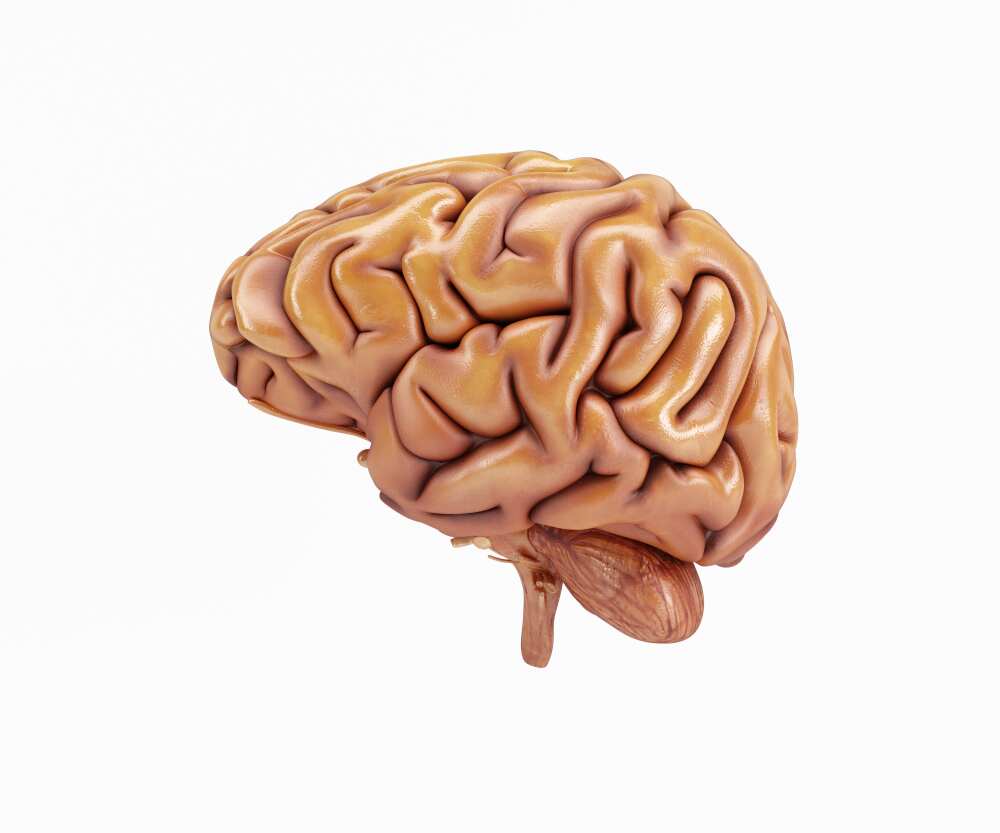The World Health Organization (WHO) defines health as a state of complete physical, mental, and social well-being and not merely the absence of disease or infirmity. But sometimes people suffer from some disease which requires their mental and physical efforts to defeat that disease. Sound health comes from complete physical and mental health and both are interdependent. Diabetes is one such disease for which both physical and mental efforts are mandatory to manage a normal life. Read on to see how the synchronization of mental and physical efforts can bring a healthy life for a diabetic patient.
What is Diabetes?
Diabetes is an incurable disease that happens when the pancreas is unable to produce insulin or your body doesn’t make enough insulin or can’t use it well as it should.
What is Insulin?
Insulin is a hormone that behaves as a key to letting glucose from the food we eat pass from the bloodstream into the cells in the body to produce energy. If there isn’t enough insulin, too much blood sugar stays in your bloodstream. With time, that can cause severe health issues like heart disease, vision loss kidney disease, etc.
Types of Diabetes:
There are two main types of Diabetes:
Type-1 Diabetes
Type-1 Diabetes is an autoimmune condition. In this type, your immune system mistakenly attacks and destroys the beta cells in your pancreas that produce insulin. The damage is permanent. There may be both genetic and environmental reasons for this type of diabetes. This type is commonly diagnosed in childhood and adolescence.
Type-2 Diabetes
Type-2 Diabetes starts as insulin resistance. This means your body can’t use insulin efficiently. In this type, the production of insulin decreases, which leads to high blood pressure. The exact cause of type 2 is unknown. Basic factors may be genetics, lack of exercise, and being overweight. This type is more common in individuals over the age of 40 years.
Symptoms of Diabetes:
The early signs can be so mild that you don’t notice them. That’s especially true of Type-2 Diabetes. Some people don’t find out they have it until they get problems from long-term damage caused by the disease.
The Early Signs of diabetes are:
•Hunger and Fatigue
•Peeing more often and being thirstier
•Dry mouth and itchy skin
•Blurred Vision
Early Signs of Diabetes | |
Type-1 diabetes | Type-2 diabetes |
|
|
Renowned Names with Diabetes
Many renowned people around the world have suffered from diabetes. But they fought out this disease with consistent efforts and brought a change in their lifestyle. Here we are discussing a few case studies of people who are celebrated.
Shaianne Chetty
Shaianne Chetty was diagnosed with diabetes at the tender age of 8 years. According to her, initially, she was scared and confused and was unable to understand her condition. Later the reality dawned upon her that her pancreas wasn’t making enough insulin so had to take a dose of insulin 6 times a day.
She was depressed and worried but her parents supported her in each hardship she faced. She loved sports but her worsening condition didn’t allow her to take part in it. From depression, she rose to the occasion. With consistent efforts and motivation, she continued doing the things that she could do while managing her disease.
She loved swimming, dancing, and playing guitar. Her teachers, nurses, and friends took care of her and made sure that she performed all her hobbies with sound physical and mental health. Now she is living with diabetes but it doesn’t stop her from doing what she loves.
Pakistani Celebrity Fawad Khan
Fawad Khan is diabetic, having been diagnosed with Type 1 at the age of just 17. In one of his interviews, he admitted that smoking was the main reason for his condition, which he started at a very young age. The Humsafar fame actor recalled a childhood incident when he was hurt but ignored it and jumped into a swimming pool.
After his diagnosis, he started looking after himself. Now he’s a strict vegetarian who commences his day with a glass of warm lemon water, eggs, and cereal. The rest of the day, he takes special care of his diet. With his conscious efforts to keep sound health, he has become a heartthrob of his fans, a celebrity we all adore and love to watch in every next drama serial.
Pakistani Cricketer Wasim Akram
Our very cricket hero, Wasim Akram’s diabetes is not a piece of breaking news. Even those not too familiar with cricket know that he has been dealing with it since he was 30, despite leading the life of a healthy sportsman. “I remember what a shock it was for me because I was a healthy sportsman with no history of diabetes in my family, so I didn’t expect it at all,” Wasim once recalled. “It seemed strange that it happened to me when I was 30, but that was a very stressful time and doctors said that can trigger it.”
Needless to say, Wasim didn’t let diabetes get the better of him though. The former cricket team captain is still widely regarded as one of the greatest cricketers of all time, not just in Pakistan but around the world as well.
In the above lines, we have discussed diabetes about physical health But in all the case studies, we have read that all the patients have made conscious efforts first by mentally acknowledging the fact that they have suffered a disease which can be managed through making some lifestyle changes. Secondly, they made physical efforts to live with that disease. So a synchronization of body and mind, we can defeat the disease. Only a strong mind can help us in making these efforts. In the following lines, we will tell you about the role of your mental health in managing your physical health with diabetes and living a rewarding life.
Managing Diabetes with a Strong Mind
1. Value yourself:
Treat yourself with kindness and respect, and avoid self-criticism. Make time for your hobbies and favorite projects, or broaden your horizons. Do a daily crossword puzzle, plant a garden, take dance lessons, learn to play an instrument, or become fluent in another language.
2. Take care of your body:
Taking care of yourself physically can improve your mental health. Be sure to:
● Eat nutritious meals
● Avoid smoking and vaping
● Drink plenty of water
● Exercise, which helps decrease depression and anxiety and improve moods
● Get enough sleep
3. Surround yourself with good people:
People with strong family or social connections are generally healthier than those who lack a support network. Make plans with supportive family members and friends, or seek out activities where you can meet new people, such as a club, class, or support group.
4. Help others:
Volunteer your time and energy to help someone else. You’ll feel good about doing something tangible to help someone in need and it’s a great way to meet new people.
5. Learn how to deal with stress:
Like it or not, stress is a part of life. Practice good coping skills: Try One-Minute Stress Strategies, do Tai Chi exercise (Tai chi, short for T’ai chi ch’üan or Tàijí quán, sometimes colloquially known as “Shadowboxing”, is an internal Chinese martial art practiced for defense training, health benefits, and meditation), take a nature walk, play with your pet or try journal writing as a stress reducer. Also, remember to smile and see the humor in life. Research shows that laughter can boost your immune system, ease pain, relax your body, and reduce stress.
6. Quiet your mind:
Try meditating, Mindfulness, and/or prayer. Relaxation exercises and prayer can improve your state of mind and outlook on life. In fact, research shows that meditation may help you feel calm and enhance the effects of therapy.
7. Set realistic goals:
Decide what you want to achieve academically, professionally, and personally, and write down the steps you need to realize your goals. Aim high, but be realistic, and don’t over-schedule. You’ll enjoy a tremendous sense of accomplishment and self-worth as you progress toward your goal.
8. Break up the monotony:
Although our routines make us more efficient and enhance our feelings of security and safety, a little change of pace can perk up a tedious schedule. Alter your jogging route, plan a road trip, or take a walk in a different park.
9. Avoid alcohol and other drugs:
Keep alcohol use to a minimum and avoid other drugs. Sometimes people use alcohol and other drugs to “self-medicate” but in reality, alcohol and other drugs only aggravate problems.
“Your illness doesn’t define you. Your strength and courage do.”
“Diabetes is like a roller coaster. It has its ups and downs, but it’s your choice to scream or enjoy the ride.”
Managing diabetes is a challenging fact but connecting with people facing the same condition can make a difference.
“Don’t hate your Diabetes, find ways to love it.”
About the Author:
Kanwal Iqbal
I am Kanwal Iqbal, a Consultant Psychologist, Counselor, Life Coach, and Content Writer. I aim to enhance well-being by crafting insightful blogs that shed light on mental health issues. I am dedicated to making mental health resources accessible to all. To me, mental health is not just a destination but an ongoing journey. It’s not only about the destination but also about the journey itself. I strongly advocate that mental health is fundamental to overall physical well-being.
Join Cure and Craft:
Calling all healthcare professionals, medical students, and writers! Share your insights, experiences, and knowledge on our platform. Let’s craft informative articles together, shaping the future of healthcare. Connect, inspire, and enlighten our audience.





